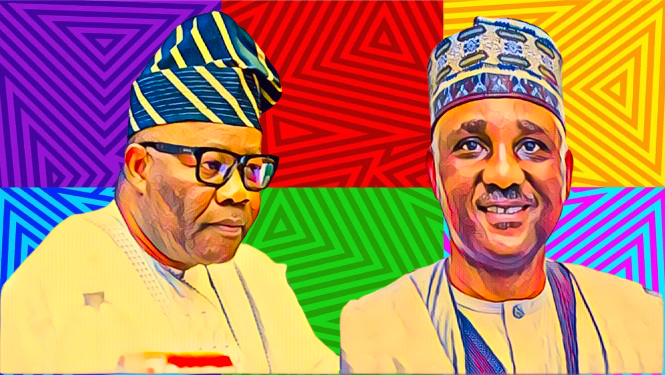The Socio-Economic Rights and Accountability Project (SERAP) has issued a strong demand to the leadership of the Nigerian National Assembly, calling for immediate transparency regarding the monthly running costs and allowances received by its members. SERAP urged Senate President Godswill Akpabio and House of Representatives Speaker Tajudeen Abbas to disclose the exact amounts of these running costs and the details of how these funds are spent.
SERAP’s demands, conveyed in a letter dated August 17, 2024, highlight growing concerns over the alleged practice of the National Assembly members fixing their own salaries, allowances, and running costs. This practice, according to SERAP, is inconsistent with the Nigerian Constitution and violates the country’s international obligations, particularly under the United Nations Convention against Corruption.
SERAP Urges End to Alleged Financial Mismanagement
SERAP has called on the National Assembly to end the practice of paying running costs directly into the personal accounts of lawmakers. The organization also urged Akpabio and Abbas to refer any instances of misuse or mismanagement of these funds to the appropriate anti-corruption agencies for investigation and possible prosecution.
“The constitutional oath of office requires lawmakers to ensure transparency and accountability in the amounts of salaries, allowances, and running costs they receive,” the letter stated. SERAP also emphasized that the Nigerian Constitution clearly prohibits the National Assembly from unilaterally fixing its own financial benefits, including salaries, allowances, and running costs.
The letter also referenced comments from Senator Kawu Sumaila, who recently disclosed in an interview that each senator receives at least N21 million monthly in running costs, salaries, and allowances. Sumaila’s remarks, coupled with former President Olusegun Obasanjo’s allegations that lawmakers are setting their own pay contrary to recommendations from the Revenue Mobilisation Fiscal Allocation Commission (RMAFC), have intensified public scrutiny.
Legal Action Looms if Demands Are Ignored
SERAP has given the National Assembly leadership a seven-day ultimatum to comply with their demands. The organization has warned that failure to act within this timeframe will result in legal action to compel compliance. SERAP argues that by accounting for and returning any misused or mismanaged funds, the National Assembly can rebuild public trust and strengthen Nigeria’s democratic institutions.
The letter further outlined Nigeria’s obligations under the UN Convention against Corruption, which requires public officials to manage resources with integrity, honesty, and responsibility. SERAP highlighted that Nigerians have the right to scrutinize how their lawmakers spend public funds and are entitled to expect transparency and accountability from their elected officials.
“Ending the practice of lawmakers fixing their own financial benefits would enhance public confidence in the integrity of the National Assembly,” the letter added. SERAP insists that it is a violation of the public trust for lawmakers to prioritize personal financial gain over the interests of the Nigerian people.
SERAP’s letter also draws attention to specific constitutional provisions that mandate public institutions to combat corrupt practices and ensure that the nation’s resources are distributed to serve the common good. The organization contends that the current practice of paying running costs into the personal accounts of lawmakers is both a breach of public trust and a misuse of public funds.
As Nigeria continues to grapple with economic challenges and widespread public dissatisfaction, SERAP’s call for greater transparency in the National Assembly’s financial dealings underscores the need for accountability in governance. The outcome of this demand could have significant implications for the future of financial oversight and anti-corruption efforts in Nigeria.
Source: Vanguard



